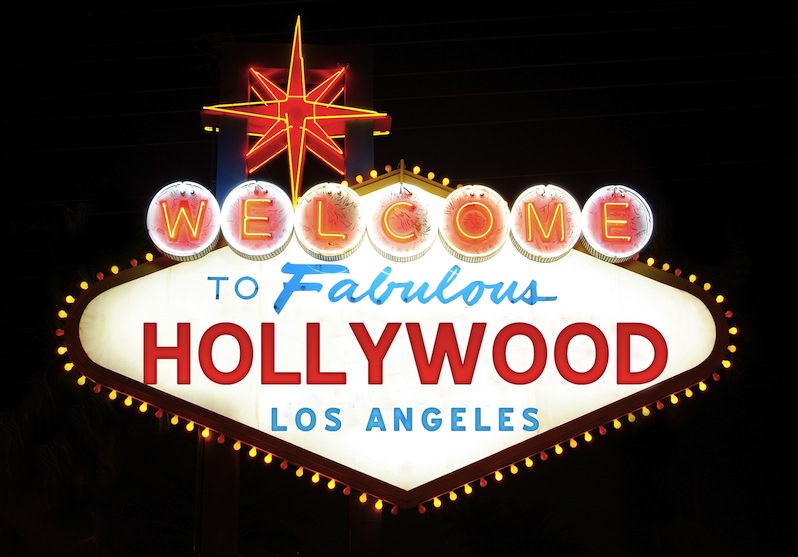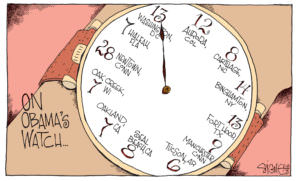Schlubs, Pick-Up Artists and Nerds: Hollywood Gets Its Close-Up in the Isla Vista Debate
As is always the case when catastrophic outbursts can be in any way linked to entertainment and mass culture, some critics have zoomed in on Hollywood as a fomenting agent for grandiose and antisocial delusions that wind their way into volatile minds like Elliot Rodger's -- and everyone else’s, for that matter. Shutterstock
Shutterstock
Aside from gun control, the social issue that’s drawn the most discussion since Friday’s Isla Vista killings is the pervasive and destructive function of sexism — or misogyny, as some prefer to frame it — in American culture.
Several commentators, such as the Los Angeles Times’ Robin Abcarian and Slate’s Amanda Hess, have traced troubling connections between Elliot Rodger’s lethal animosity toward women (and the men who “get lucky” with them) and other, less overt forms of gendered violence that women encounter in their professional and social lives and in fleeting interactions with strangers. Social media platforms have registered women’s everyday experiences of the impact of misogyny, in its concealed and blatant varieties, in the #YesAllWomen Twitter feed and the “When Women Refuse” Tumblr page.
As is always the case when catastrophic outbursts can be in any way linked to entertainment and mass culture, some critics have zoomed in on Hollywood as a fomenting agent for grandiose and antisocial delusions that wind their way into volatile minds like Rodger’s — and everyone else’s, for that matter. The result? We just might all be susceptible to, in this case, absorbing and acting out the stories about sex, gender and relationships we pick up from the screens, songs, ads and news bytes that we couldn’t avoid if we tried. Or so goes the argument.
These charged ingredients combined to make flashpoint material in the media over the weekend, when The Washington Post’s Ann Hornaday made some leaps from Isla Vista to Hollywood and the works of the prolific comedy multi-hyphenate Judd Apatow:
Indeed, as important as it is to understand Rodger’s actions within the context of the mental illness he clearly suffered, it’s just as clear that his delusions were inflated, if not created, by the entertainment industry he grew up in. With his florid rhetoric of self-pity, aggression and awkwardly forced “evil laugh,” Rodger resembled a noxious cross between Christian Bale’s slick sociopath in “American Psycho,” the thwarted womanizer in James Toback’s “The Pick-Up Artist” and every Bond villain in the canon.
As Rodger bemoaned his life of “loneliness, rejection and unfulfilled desire” and arrogantly announced that he would now prove his own status as “the true alpha male,” he unwittingly expressed the toxic double helix of insecurity and entitlement that comprises Hollywood’s DNA. For generations, mass entertainment has been overwhelmingly controlled by white men, whose escapist fantasies so often revolve around vigilantism and sexual wish-fulfillment (often, if not always, featuring a steady through-line of casual misogyny). Rodger’s rampage may be a function of his own profound distress, but it also shows how a sexist movie monoculture can be toxic for women and men alike.
How many students watch outsized frat-boy fantasies like “Neighbors” and feel, as Rodger did, unjustly shut out of college life that should be full of “sex and fun and pleasure”? How many men, raised on a steady diet of Judd Apatow comedies in which the shlubby arrested adolescent always gets the girl, find that those happy endings constantly elude them and conclude, “It’s not fair”?
Apatow and actor Seth Rogen, star of “Neighbors” and “Knocked Up,” among other schlubby-hero flights of fancy, didn’t appreciate the association with the Isla Vista tragedy, and they let that be known via Twitter. Other culture-watchers, such as Variety’s Andrew Wallenstein and Salon’s Andrew O’Hehir, took their positions on the topic.
The problem with this line of critique is that, no matter how obvious the link between media exposure and extreme acts of violence may seem — especially when, as in the 2012 Aurora, Colo., theater massacre, a perpetrator explicitly borrows from Hollywood plotlines and chooses “the movies” as the setting for the crime — actually proving that connection beyond the anecdotal level is notoriously difficult, even for the keenest researchers who spend their careers analyzing media effects. So these arguments can’t ultimately be settled, and momentary flare-ups in public discourse fizzle into predictable burble about market-driven entertainment consumption, the undesirability and futility of censorship, how the overwhelming majority of movie/TV/video game consumers don’t go off the deep end, and so on.
Regardless, this latest awful episode has sparked a conversation, and while Rogen doesn’t deserve a pundit pile-on (and O’Hehir, for one, contends that’s not what happened anyway), there’s a reason why a collective nerve was touched at this moment in this way.
Out of the pop-culture mix comes Arthur Chu, “Jeopardy!” champ and self-proclaimed nerd at large, who somewhat randomly took the opportunity to articulate his read of the situation, calling out men like him — and himself at times, along with Ayn Rand, John Hughes, “The Big Bang Theory” and Super Mario Bros., no less — for promoting certain problematic behaviors and shared attitudes about women and sex. We’ll let him have the last word here (via The Daily Beast):
Your support matters…We are not the lovable nerdy protagonist who’s lovable because he’s the protagonist. We’re not guaranteed to get laid by the hot chick of our dreams as long as we work hard enough at it. There isn’t a team of writers or a studio audience pulling for us to triumph by “getting the girl” in the end. And when our clever ruses and schemes to “get girls” fail, it’s not because the girls are too stupid or too bitchy or too shallow to play by those unwritten rules we’ve absorbed.
It’s because other people’s bodies and other people’s love are not something that can be taken nor even something that can be earned—they can be given freely, by choice, or not.
We need to get that. Really, really grok that, if our half of the species [is] ever going to be worth a damn. Not getting that means that there will always be some percent of us who will be rapists, and abusers, and killers. And it means that the rest of us will always, on some fundamental level, be stupid and wrong when it comes to trying to understand the women we claim to love.
Independent journalism is under threat and overshadowed by heavily funded mainstream media.
You can help level the playing field. Become a member.
Your tax-deductible contribution keeps us digging beneath the headlines to give you thought-provoking, investigative reporting and analysis that unearths what's really happening- without compromise.
Give today to support our courageous, independent journalists.



You need to be a supporter to comment.
There are currently no responses to this article.
Be the first to respond.